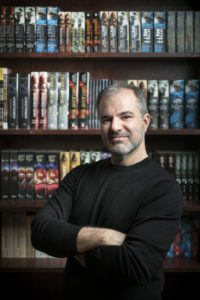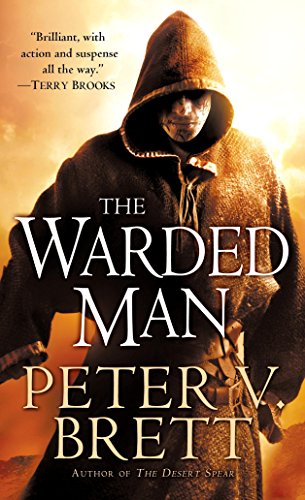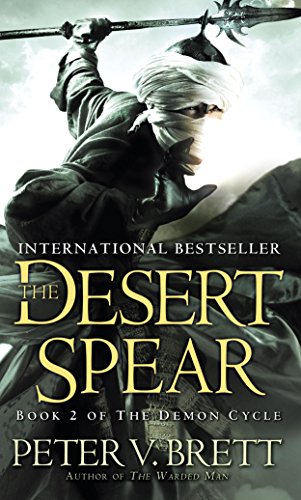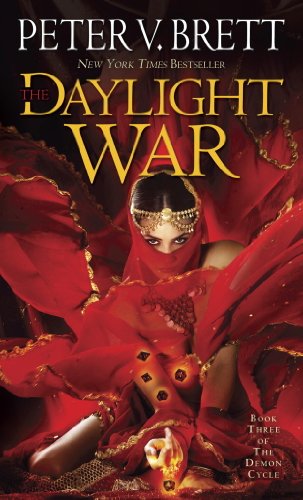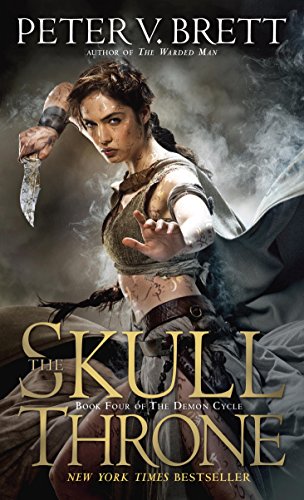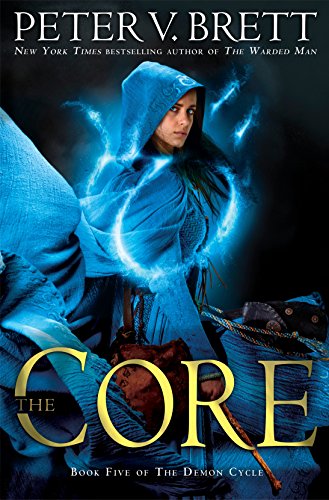Podcast: Play in new window | Download | Embed
Subscribe: Apple Podcasts | Spotify | Amazon Music | Email | TuneIn | RSS | More
An hour-long conversation with Kevin Hearne, author of the Seven Kennings trilogy, The Tales of Pell (with co-author Delilah S. Dawson) and the New York Times-bestselling series The Iron Druid Chronicles.
Website:
www.kevinhearne.com
Twitter:
@KevinHearne
Instagram:
@KevinHearne
Facebook:
@authorkevin
The Introduction
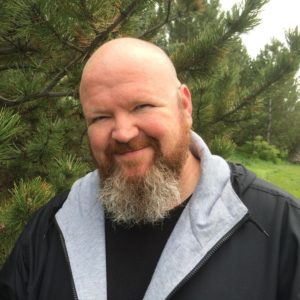
Kevin Hearne is the author of the Seven Kennings trilogy, The Tales of Pell (with co-author Delilah S. Dawson) and the New York Times-bestselling series The Iron Druid Chronicles. In his own words, “he loves doggies and trees and art of all kinds and is astounded at how much college costs now.”
The (Lightly Edited) Transcript
Welcome to The Worldshapers, Kevin.
Hey thanks so much for having me, Edward.
Now, we met at Can-Con last year in Ottawa. That was your first time at that convention, I think?
Yeah, it was.
Yeah, it’s a great one, and we were on a panel together about writing series, which I felt kind of overmatched on because my longest series was five…a YA series with five books, 60,000 words each, and The Iron Druid is…more than that.
Yeah. It’s up to nine novels and then there’s a collection of short stories and a bunch of novellas, things like that.
Well, I wanted to tell you how I came across the Iron Druid books first. I was at a World Fantasy Convention in…I guess it was in Washington, DC, that year. And, of course, they have a book bag as…people who haven’t been to them, you get this great bag of books that they give you at World Fantasy, and even if you don’t like the books, you’ve got a great bag. And one of the books in there was the first book in the Iron Druid Chronicles and it was actually my publisher, Betsy Wollheim at DAW—co-publisher with Sheila Gilbert at DAW—who made a point of showing me your book and saying, “You should read this,” because I think she was one of the publishers in the mix when it was being shopped around, and she’d wanted it but of course it went with…Ace, right?
Del Rey.
Del Rey. Oh, sorry!
No worries!
It’s because I hadn’t looked at my notes…I looked at them at the wrong moment there. So, yeah, it was actually another publisher that pointed out the Iron Druidbooks to me and then I read them all. So, I’m well prepared for this.
Well, thank you.
Now, we’ll talk specifically about the creative process, your creative process, and the writing of those books specifically a little later on, but I always like to take my guests back into the mists of time and find out how they got started…well, first of all, interested in…it usually starts with reading the fantastical…and then how they got interested in writing it. So, I know you grew up in Arizona. I was born in New Mexico, by the way, right next door. And so, how did that all begin for you? Did you start reading it and then get interested in writing? What was the process for you?
Oh, I did start reading. I guess my first love of action-adventure and fantasy and that kind of stuff came from comic books, superhero comic books, when I was a wee lad, and, you know, reading Spider-Man especially. And then, as I got older, I think my first introduction to fantasy and then really science fiction both was through the author Alan Dean Foster.
Ah, yes.
He’s got over 120 novels to his name now, I mean, talk about prolific. He’s still going. I read his Spellsinger books and they got me really loving the fantasy period. You know, I mean, there’s talking animals in ’em, so there’s an inspiration for you. Then he had the Pip and Flinx books, where you had a redhead with a telepathic connection with a mini-dragon and the redhead kept getting in trouble a lot and, you know, had this really strong bond with his mini-dragon and so, that’s also an inspiration, you know, for Atticus and Oberon down the road. So, that’s where I really got into fantasy. And if you want to look for inspiration for, you know, the Iron Druid chronicles I would look at those old books rather than anything newer. The inspiration to write, though, or my desire to start writing, didn’t happen until college. I was really interested in some first-person points of view that I was reading at the time and how that could simultaneously reveal so much of the character’s thought process but also keep a lot of things secret because, you know, i the first person narrator doesn’t interact with them, you know, they’re not gonna be aware of it. So, I kind of liked that. So, anyway, that got me started, but I didn’t get published for another twenty years. I was writing for a very long time before I got published.
So, you didn’t do any writing at all in high school, or…? That’s that’s what a lot of people start.
I didn’t! In high school I was into music and art. I was actually a graphic-design major originally and I was doing cartooning and things like that.
That’s something else we have in common. I was editorial cartoonist for a weekly newspaper for several years in my twenties when I started as a journalist.
Well, no kidding. I did that, too, I did the editorial cartooning for the college newspaper.
You’re probably a better artist than I was, but anyway…
It was a lot of fun, but ultimately it wasn’t…it didn’t really appeal to me in terms of creative freedom, being a graphic designer, because you would always have some sort of corporate client, probably, and then you’re making cool stuff to sell things, which…I suppose that’s also what writing a novel is. But it’s different, somehow.
It worked out for Andy Warhol. I mean he started drawing shoes, and then…
Yeah, right. But I just, I switched from graphic design to English, and then got into reading, of course, a whole lot more, and, you know, that just inspired me to write, as well.
Your degree was actually in English education.
Yes.
Did you have creative writing courses along the way?
I did not. See…so, the very bizarre thing is that I never took a creative writing course, and I never took a writing workshop or went to a writing conference. I’m entirely self-taught, which is, you know, considering how long it took me to get published, that might not be the best way to go in retrospect—maybe I should have gone to some writing conferences, I would have learned quicker—but I basically learned from a lot of mistakes, a lot of trial and a whole lot of error, basically, and gradually figured out how to tell a story that way.
So, you were actually teaching high school English over most of those years, weren’t you?
Yes, I was. I was teaching mostly freshmen through juniors. I didn’t do the seniors so much.
Do you find that having…I presume you were teaching some creative writing as part of your classes…did you find that teaching it helped you on your own writing in any way?
Not so much. A lot of times…unfortunately, a lot of what we were supposed to teach was not creative at all. We were kind of required…you know, education at the time, it was going through the throes of this, you know, standardized testing and having your pay tied to performance and all of that kind of stuff, and it’s still going through that, I think. And it really kind of changed the focus from growing people’s minds to “let’s make sure people can pass the test.” And so, there was a lot of essay writing and using a rubric to grade them and so often we found that there was a dire need just to figure out structure, that a lot of the creative stuff we never even got a chance to get to because we were spending so much time on kind of remediation.
I’ve had a few opportunities to teach high school but only for short periods of time. I was a writer-in-residence at a local high school and worked with kids but that was very different because they were very much the kids who were interested in creative writing and were coming to me for advice as opposed to trying to teach just the general student population. I did find out, though, that with a week, spending a week in high school, I was glad I had not followed my father’s footsteps and actually become a teacher. I don’t think it would have worked out well for me.
Yeah, it can be a tough job, but of course it’s a necessary one, and I do miss the kids. I don’t miss taking attendance, though, or faculty meetings. But I do miss the kids. They’re always a lot of fun, even if you’re teaching the same thing every single year. It never gets old, because the kids always have different reactions to it and no day is the same, and that was delightful.
So, somewhere along in there you decided to try to write an epic fantasy novel.
Yeah. I tried to write an epic fantasy, and I did. I wrote an epic fantasy, and it was like 240,000 words, but it was really full of clichés and kind of structural crutches. But it was my first attempt at writing something that was really specifically genre and I learned a lot of what not to do next time.
That’s a lot of practice words.
Yeah. I think I definitely put in how many hours you’re supposed to put in to become an expert in something. I don’t know what that phrase is, is it 10,000 hours or something. I don’t know.
I’ve heard variations of it. I think Stephen King said half a million words of unpublished stuff before you ever write anything publishable. I sometimes think that’s low.
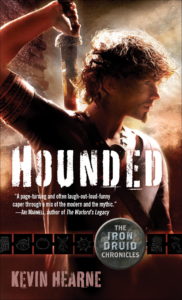
Yeah. I think I definitely hit that benchmark by the time I started working on Hounded. And Hounded was a lot of fun, and that’s what I was doing, actually. I was writing it to entertain myself, and because, I think, I did that it just…when I got finished with it I actually didn’t think anybody would want to read it because it was, really, all of my kind of geek-outs, but my wife convinced me to seek out an agent and I got one. So, basically, it just kind of proved once again that my wife is always right.
That’s a good philosophy. So, for those who may not have read…unbelievably, have not read…any of the Iron Druid books, I’ll let you do a synopsis of what they’re about, because that way I don’t give away anything you don’t want to give away.
All right. Basically, it follows the…I started with the dog. I wanted to have a dog that could be a character that a human could talk to, and that kind of wound up being the inspiration for Atticus, a Druid. So, this follows the adventures of Atticus O’Sullivan, a 2,100-year-old Druid still living among us today, who stole a magical sword from the Tuatha Dé Danann, the gods or the Irish, pagan Irish, and they want it back. So, basically his decision to fight them…well, he’s a fugitive for thousands of years…but when he eventually decides to fight, that has consequences that snowball on him. And that is basically your series, this fellow who decided to fight the gods instead of run.
And he lives in the same part of the world that you lived in.
Yeah. I really enjoy reading fantasies, or urban fantasies I should say, that are set in real-world locales that you can actually go and visit. I think that the reality of the urban setting is a really fun anchor for the really fantastical elements that you wouldn’t believe otherwise, but because you have a real setting, it helps you swallow that. So, that’s one of the reasons I kind of stay faithful to the actual settings and try to make them come to life as much as possible.
So, you were writing Hounded while your epic fantasy was making the rounds. But Hounded itself made a significant number of rounds of publishers before it got published, didn’t it?
Yeah, it…well, my agent sent it to nine different publishers and four of them decided to put in a bid on it. So, you know, that was super fortunate. I actually wound up getting to go to auction and then I chose one based on proposals that I was given and was super-happy with the result. Del Rey has been wonderful.
Now, it’s become a series. Did you have that in mind from the very beginning?
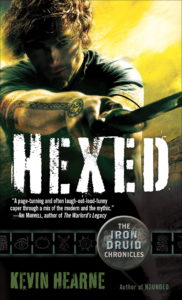
Oh, yeah. What we did is, we wrote the first book so that it could be a stand-alone, but with series potential. So, it was pitched to the publishers that way. So, I had Hounded complete. And then I had Hexed outlined, and then I had, like, one sentence for Book 3, which is, you know, Atticus goes to Asgard. And that was the proposal basically given to all the publishers. They knew that I had a complete Book 1 and plans for more if they wanted them. And on the basis of that they offered me three-book contract. Every single one of them gave me a three-book contract offer. We just didn’t know what we were gonna get. A lot of times they like to try to get series and see if they work and then, since they did work, thank goodness, they let me write more, so, that was great.
Okay, I want to go back to the writing process itself. You mentioned having an outline for the second book when you did the submission. But, what does your preparatory work look like for a novel? What does your outlining process look like? Do you do a very complete one or very minimal one, or how does it how does it work for you?
Well, for Hounded I had none at all. And that, you know, that’s because I guess I had no deadline, right? You know, I was just making it up as I went, and so I have the experience of writing by the seat of the pants, as one says, but what I do now is, I write chapter summaries, and I’ll try to get anywhere from twenty-four to thirty chapters in, and if we average around 3,000 or so words per chapter, then you’re getting into a ballpark of what you need in terms of word count for an urban fantasy, which is 80,000 to 110,000 kind of range, somewhere in there.
So, Hounded was actually just 81,000 words to begin with. It expanded a tiny bit in its editing stages. All of my books do; I wind up expanding upon revision instead of cutting. So now my outlines are just these chapter summaries that may have snippets of dialogue in them, because I do wind up…I believe that a lot of character is revealed through dialogue and through those conversations we really have, actually, a lot of plot resolved sometimes, or character revealed, so those go into my outlines when I feel them. So, I guess my outlines wind up being about seven to ten pages single-spaced. And what I do then is, I write non-sequentially. I don’t feel that…once I have an outline, I don’t feel that I have to go from the beginning to the end. I already know what end is, kind-of sort-of. So, whatever I’m feeling that day, that’s what I write. If I get stuck on Chapter 3, I don’t have to sit there and stare at the page and bang my head against the monitor, I guess. What I do instead is, “Hey, Chapter 7 looks fun. Let’s write that instead!”, you know? So, I’m just basically productive every day because I have the outline, and I’m kind of a slow and steady fella, writing anywhere from one to two thousand a day in terms of word count, but because I’m kind of, you know, consistent with it, it winds up being a pretty good way to get a couple of books done a year.
I don’t think I could work non-sequentially. You’re the first…I think you’re the first author I’ve talked to that works that way. So that’s interesting.
Yeah. I understand that it’s completely…I didn’t realize it either, at first. Like, I did work sequentially at first, but in the process of writing a second book, when I really did have my outline there, and I realized I had to…to make the book better I kind of had to switch around the sequence of chapters anyway. And some of these I had written, some of them I’d not, and in the process of switching things around, I realized there’s no reason I have to go from beginning to end anyway. I can write this out of order and then kind of do an edit part in sequence when it’s all done and make sure everything fits together right.
Going back to Hounded, you didn’t have an outline. Did you find yourself occasionally running into dead ends or having to back up and take another run at something, or what was that process like when you were working literally by the seat of your pants?
I don’t think I had too many dead ends there, in the sense that I had to go back and start over again. I did keep going forward but what I had to do was take breaks for…well, for teaching school, of course, but also for some research, because I was doing a lot of research in the background on worldbuilding stuff and making sure things would kind of fit together logically. There’s a magic system. So that’s what took so long, I guess, is figuring out how everything would work. So…and then my editor or, I’m sorry, my agent, got a hold of it and he asked for a couple of revisions, mostly a fight scene in the first chapter, I didn’t have one in my original draft, so I had to put a fight scene in the first chapter, makes some few adjustments, and then it was sent out.
You mentioned research, and that’s something I do like to ask about what, and particularly this book…these books…eventually seem to pull in just about…every mythology you can think of shows up at some point or another…so it looks like there’s been a lot of research involved. What does that look like for you? How do you research?
I try to do primary sources where possible when it comes to religion. And, for the Tuatha Dé Danann mythology, or the pagan religion of the time, there’s not a lot of great extant sources on Druidry that, you know, that are actually real. Everything is…the Druids themselves were an entirely oral culture, so nothing in writing survived. What we have instead are archaeological records, and some stories that were written down by Christian monks years later. So, they were preserving the culture and all of that, which is fantastic. However, you do have to realize that these were written by folks who might not have actually been believers at the time.
So, anyway, I was reading those original sources, kind of dry, ’cause they didn’t write, you know, stories the same way back then that they do now. But fascinating characters, and I tried to imagine what they would be like in a more modern day. The same thing with the Norse and so on, all of those myths, you go back to the original source material and you pull from that and then you find holes in it. That’s what I was doing, I was…you know, there’s plot holes in there, and one of the biggest plot holes that I found was that Fragarach, the sword that could cut through any armor, was given to Conn of the Hundred Battles in the first century by the Tuatha Dé Danann, and it was never given back—and there’s no explanation for that. And so, that was my, the hole that I found that I could exploit and say, well, the reason it was never given back is because my character stole it. And so, that what I love about going back in the original material and finding things where I can kind of put my stories alongside what’s already there.
Now, obviously you have a main character, because it’s a first-person narrative. How do you find the other characters that you need to tell the story, and do you do preliminary work to develop them or do they sort of develop on the page as you write?
I’ve done a little bit of preliminary stuff, yeah, for some of those characters, but some of them, you know, just walk on in when I need them.
Hal and Gunnar—Hal Hauk and Gunnar Magnusson—were these kind of werewolf lawyers that I kind of just made up as I went along. And other than the idea that I wanted the werewolves to have white-collar jobs, because I kept seeing them have blue-collar jobs in a whole bunch of books that I’d read…I didn’t know why that was a trope, you know, why are werewolves blue-collar workers?…but I just wanted to flip that around and have fun with it. So, I did. And then, same thing with a vampire. There was a trope that usually there’s going to be…in urban fantasy at the time the vampire was probably going to be a sexy one and might be part of a love interest or something like that, so I made sure that this vampire was not sexy and was not really anybody’s love interest at any point. So, just to kind of flip the script the tiny bit, you know.
So, it sounds like you were reading widely in the field in the years leading up to writing in the field. Is that a safe thing to say?
Yeah, I read it quite a bit of stuff and noticed patterns and was doing my best to make sure it fit in the genre, because it did have werewolves and vampires in it, for example, but also at the same time I was being a little bit different by, you know, nobody else was really writing about a druid, for example. So, I was trying to take things in a slightly different direction.
So, writing in first person—you mentioned earlier that that was something that attracted you when you first started writing, and the challenges of everything has to be seen by that character. My current book series that I’ve started, Worldshapers, has largely a first-person narrative, and it is an interesting challenge. Have you ever occasionally wished you could throw in another viewpoint?
I not only wished that, I did it.
I had forgotten that!
Yeah, I put in Granuaile and Owen in the later books…
Oh, that’s right. I remember now.
Yeah, yeah. That allowed me to basically tell parts of the story that had previously been hidden, and also, it really frees you up a little bit to put some tension in there, because one of the drawbacks of a first-person character is the reader isn’t really afraid they’re ever going to die, otherwise they can’t be telling the story, right? So, by having different characters in there, then there’s the possibility of some danger for any of them because their narrative can end and be taken up or continued by somebody else.
Yeah. Writing first-person…also you don’t get a different take on anything that’s happening. Like, if you’re first-person you always have this one person’s opinion of things and other people may have a completely different view of what has just happened.
Exactly, yeah.
My current series is largely first-person, but I from the very beginning I introduced one other character, so it’s not a pure first-person narrative even from the start.
So, what does your is your actual writing look like. I mean, you’ve talked about how you don’t write sequentially, but I mean, do you…I’m talking about the physical act. Do you write in your office, do you write in coffee shops, do you scribbled on the back of, you know, old test papers, like Tolkien started writing The Hobbit?
I do a lot of different things. I don’t have a set schedule. I just…the only thing I try to do is make sure I get, you know, a thousand to two thousand words a day, and how I accomplish that does vary quite a bit. So, sometimes I’m in my office, sometimes I’m out in the kitchen, sometimes I’m in a coffee shop or a bar somewhere, just wherever I feel that I can be inspired. I’m often listening to music, and it’s instrumental metal or classical, something without lyrics, because I find the words in songs wind up being distracting when I’m trying to, you know, pull words out of my brain and put them on the paper. So, I have also written manually on an old-fashioned typewriter. I’ve also written a story by hand and journal and then had it typed later. So, I tried a whole bunch of different stuff and I enjoy it all, but, yeah, the laptop is the fastest method of doing things.
It’s interesting you mentioned music. There was a news item I just saw this week about a study that showed that listening to music, at least for some people, interferes with the creative process. And so, I started sort of paging writers to see whether they listen to music or not, and it sounds like you do, but it’s not…there’s no lyrics. And I agree with you, that’s what…that’s almost impossible, to have words going on in your ears while you’re trying to write words.
Yeah, unless it’s very low volume and stuff that, I don’t know, that you can basically treat as background noise, you know? Then I don’t think…I think in those cases, where it’s a background kind of thing, that maybe you’d be able to get away with having lyrics. But usually I’m using instrumental metal. I have a couple of different playlists. I really like a band called Polyphia, and another band called Scale the Summit, and they have multiple albums out, and so you can listen to them for hours, and that will allow you to get your entire writing session done without ever hearing anything on repeat.
And you’re actually the second author I’ve talked to who listens to metal when they write, which is…Arthur Slade, who’s a young adult fantasy author here in Saskatchewan, where I live, listens to heavy metal when he writes, which I think is an interesting choice.
Yeah, well, I kind of need it to do…I’m not very much of a fighter, you know, I’m a pretty peaceful fellow, and ironically I write fight scenes a lot, so I need to get my brain in, I guess, a more aggressive mode, and metal helps, so that’s why I do it, because it helps me get to the action scene, or, you know, get me in the right frame of mind, I guess, for action sequences.
You mentioned a little bit about the revision, with your agent, and he asked you to put in a fight scene and things like that…when you had your draft, and when you have a draft of your later books in the series, what does your revision process look like? Do you show it to other people and then revise, do you do a pass through at first…how does it work for you?
The first few books I had an “alpha reader” (I call him instead of a “beta reader”). I had a friend who would look at my chapters as I went and give me some feedback on them. He was a very logical person and…well, he still is, he has a doctorate in math, so a very logical person, who would point out some flaws here and there. But over time, I got more confident and better at avoiding some of the pitfalls that, you know, that I fell into early on, and I didn’t need that as much. So now, I basically write it and send it to my editor and just go from there and there is nobody else who sees it besides my editor, so…I’ll share some chapters here and there with my wife, but she likes to read the finished copies, so…that’s kind of my process now, but I did start out with having an alpha reader. But I never had a writing critique group or anything like that.
What does your own revision process look like, just when you’ve got a draft and you’re publishing it up before you submit it? What sorts of things do you find yourself having to correct in that pass?
Okay, so earlier I mentioned that I tend to look at dialogue as being revealing of character. Dialogue and action. What a person decides to say and do usually tells you a lot more about them than how they’re dressed one day, for example. And I don’t consider appearance to be a huge indicator of a person’s actual character, it’s just their appearance. And appearance is important for the reader to give them a mental picture of what’s going on, but it doesn’t it doesn’t matter to me as a writer when I’m interested in exploring the character. So, what I find that I do is that I don’t ever describe the characters. I keep forgetting to do it, basically. So, when I do my revision I have to go back in and insert little passages saying, you know, this is what they look like. And I’ll still miss a few. And my editor will come back and say, “Hey, Kevin, we don’t know who this major character…we don’t know what they look like. Are they tall, are they short? Give us something, please.” And they do it book after book. You know, my edtior keeps doing this, and she says, “Well it’s a strange…you know. you’re the only person I really have to do this with.” And that’s kind of strange. But, you know, there are worse faults. So, I’ll take it, right? So, that’s one of things I’m usually doing is, I’m going back in and putting in descriptions of characters during my revisions.
Do you do a lot of tweaking of the actual prose on that pass-through?
I do a little bit. I will sometimes…I actually do a lot of that kind of stuff as I go. One of the reasons I might have a slower word count, or a lower word count, per day is because I do self-edit as I go, being…this is part of the English teacher thing, I guess. So, it’s fairly clean, you know, my first draft, but then a lot of what I have to do is, I will occasionally expand on things and tweak some of the language. I will look for repetitive words.
One of the things I started to do recently is ruthlessly cut out any phrase that uses the construction “couldn’t help but.” “He or she or they couldn’t help but smile, or…”, you know. I saw it in my own work and then I started seeing it in a bunch of other books, too, and realized that this phrase had become kind of stealthily incorporated in a whole lot of people’s everyday vocabulary and they weren’t, or at least I, was not really thinking about how often it was being used. And so, I now seek it out and I find I find it quite often, honestly, or I used to. Now that I’ve been doing it and I’m careful against using it I don’t use it anymore. For a while there it was popping up everywhere.
You realize I’m now going to have to go do a search on my last book and see if I’m using it that much.
Yeah, it’s…I don’t know how that phrase became so popular. But if you think about it, you can help but do something, and there’s probably a better way to say it. And I think that it has become an easy way to, or a shorthand, I guess, for describing someone’s reaction to something instead of really exploring how it affected them. And so, that’s one of those things where I wanted to try to do better than lean on that phrase.
You know, that is interesting, and the more I think about it the more…yeah, I will definitely do a search for that in my last manuscript I find…I mean, every author I talk to who has these little things that they, you know, have cropped up and they’ve become aware of. And once you’re aware of them in your writing, you’re right, it seems like you see them everywhere because you’ve been working so hard to cut them out of your own.
Right.
My case is, my characters have a tendency to make animal noises too much, like, they’ll growl dialogue, or they’ll snarl something. I try to watch out for that.
Yeah. I think almost every writer you talk to might have some, yeah, some kind of story like that where they become aware of some crutch that they’ve become dependent on and they’d like to, you know, stop using it and write normally, if that makes any sense. Write in the way that they were used to writing before they started using it.
Now, you mentioned that your books typically get longer in the editorial revision process. That can’t all be adding fight scenes and character descriptions. What are some of the other things that you usually end up building in after the editorial comments?
Yeah, my editor will say, “Hey, can we see a little bit more development of this particular relationship,” or, “This character over here is really interesting, but, you know, it looks like they should have a very strong character arc and development going from point A to point B, but they don’t seem to have that, they just kind of stay at point A the whole time, so can you build an arc for this particular character and have them change.” And so, I’ve done that a couple of times, where I built in some extra goodies or some of the smaller…or. not smaller. but. you know. more minor role characters…and, you know, just to make sure that everybody is really the hero of their own story and they all have some depth to them.

The curious exception to that is Oberon. He is the flat character that everybody loves. He always likes, you know, meat and poodles and so on, and he doesn’t really change in that regard, but that’s one of the characteristics of what a dog is, right? They’re loyal and they love food and playing and, you know. So that’s one of the ironies of the series, I guess. My most popular character is the character that I don’t have to work on very much to develop.
So, you started with the three books, but the series has gone on. How do you…and this goes back to the panel we were on about writing series…how did you find the nuggets for the future books as it extends out. You weren’t building in stuff for Book 10 when you were on Book 2, so how do you tease out the threads that will enable you to continue the series further?
Well, when I was writing Book 3 I was very conscious at the time of wanting to…you know, it was the end of the contract, but I wanted to write more. So, I did put in a whole bunch of stuff that could be developed later on, and Book 3 really is…a lot of the stuff that winds up happening down the road in the series has its origins in Book 3. Although, of course, Books 1 and 2 lead up to three, so I mean, you can, you know, you can always see the origins of things in the them as well, but the decisions that Atticus makes in Book 3 just have incredible consequences. They really do snowball on him. So that’s what I was doing with that particular book. I was conscious…I didn’t know how long they would let me go. I might…I was prepared to do it in six books, but I would have preferred to do nine because, I guess to be consistent with Irish mythology or pagan, you know, the pagan tradition, nine was a really important number in the old Irish myths. They did everything in multiples of nine: nine weeks, nine days, nine months, whatever. So, I thought a character from that culture would tell his own story in nine books, and that’s what I was really aiming for once I got down to Book 3 and was thinking about, “How am I going to go forward? I’d like to write nine books.” So, thankfully, folks, you know, bought enough copies of the first ones that they would, that they let me do that.
Now, one of the things I think we talked about on that panel at Can-Con as well was, at least something that I was aware of just in my little series: continuity. There’s a lot of facts and details that build up over the course of that many books and some of them are created on the spur of the moment as you’re writing. Do you keep detailed notes about things that might come back to bite you…now, of course, you said you don’t describe your characters, and that’s one of the things that often continuity crops up. But do you find that a problem, continuity?
I’ve been…I think by keeping it under ten books I just sort of skated under the necessity for having a huge bible. I know that that kind of stuff can be totally helpful, and I’m realizing in my epic fantasy series that I probably do need to keep some sort of bible like that or start thinking about compiling one for the third book. But for The Iron Druid I didn’t do that. However, I did have occasional continuity errors and I did have to go back and look up…like Greta, for one example, was a character who had appeared in every book but didn’t get developed really until Book 7. I had to wait until I could really start developing her. And so, we’re getting into Book 7 and I’m giving her a bigger role in things, and then I had to go back and figure out, “Wait! Did I ever say what color her hair was?”, for example. I couldn’t remember some of the details of her appearance.
Another thing a copyeditor saved me on was the color of Hal’s car. I had made it…I think I described it as blue in one place, and then in the subsequent draft I’d made it silver, or vice versa, maybe I’d made it silver first and then I made it blue. See, now I still can’t remember the color of Hal’s car! But the copyeditor saved me on that so it was consistent from book to book.
So those kinds of small details, yeah, those can trip you up sometimes, but in terms of the characters’ arcs, you know, and continuity in terms of what they’re doing and where they’re going as a person, I was pretty…I was able to do that without help. But small details, yeah, I probably I should have employed something there to help me out a little bit more.
So, is Atticus’s story complete?
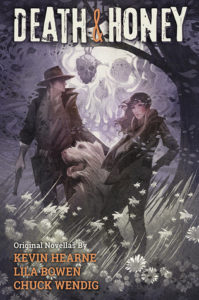
I would say now pretty much yeah. I just came out with Death and Honey this week, and it includes an “Oberon’s Meaty Mystery” that is set five months after the end of Scourge. Atticus, Oberon, and Starbuck in Tasmania, and Oberon is the narrator, but he speaks quite a bit about what Atticus has been going through ever since the end of Scourged, so that’s kind of an extended coda to the series where…and I really couldn’t just write an epilogue at the end and say, “Oh, here’s what happened later,” kind of thing, because there’s a lot to it and it didn’t seem it that it would work at the end of the novel.
So, this last novella was a fun adventure, you know, a little “meaty mystery,” but it was also a way for me to explore some of the things like, how did Atticus resolve and process everything that happened to him in Scourged. Yeah, and so if I do tell it, Atticus himself, he’s not going to be a narrator anymore. If I do write anymore of Atticus’s story it’ll be probably from Oberon’s point of view or even from Owen’s point of view. I have Owen in a novelette that that’s going to be coming out this summer.
But then I do, I have a new spinoff series set in the Iron Druid universe called Ink and Sigil, and I’m working on that now, and it’ll be out, I guess next year, late next year, and that’ll be…it won’t be…It’s set in theIron Druid universe, but it has a completely different character that was introduced in a short story as the main character. His name is Aloysius MacBharrais…and he’s a Scots wizard detective.
Where do these shorter pieces come out?
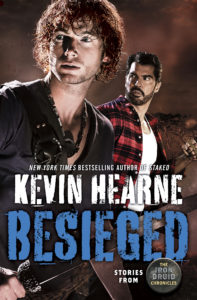
I sometimes self-publish them, sometimes they were in anthologies, and then in one case, the one that I’m talking about here, Al showed up in a story in Besieged, which was a collection of Iron Druid short stories that really basically functioned as Book 8 1/2. They could be read in sequence and they would really kind of take you from the events of Book 8 to Book 9.
Well, that kind of touched on something I was going to ask, “Which is what are you working on now?” So, good for that…
Yeah. I’m working on several things. I’m copyediting The Princess Beard, which is the third book of the Tales of Pell. The second book comes out in April, it’s called No Country for Old Gnomes.
I love that title.
Thanks. A lot of fun. And then, I’m also working on A Blight of Black Wings, which is the sequel to A Plague of Giants. That’s the epic fantasy stuff. And then I am working on Ink and Sigil, as I was saying a little bit earlier here, the new Iron Druid spinoff series. It’s going to be a lot of fun. Set in Glasgow, Philadelphia, and Chattanooga.
So, keeping busy!
Yeah, that for sure. I’ve had to say no to a couple of invitations. I’m just too busy to contribute to everything. But I do have one short story that I’ll be contributing to an anthology soon here.
So now I want to talk the, you know, the big picture, the big philosophical questions. So, why do you do this? And, you know, ultimately why do you keep writing, why do you think any of us write, and particularly why do we write these crazy stories of Druids and magic and things like that?
I think that fantasy and science fiction are vehicles for…we can kind of rent that car for a while and take a drive and see what it might be like to look at things out on the road, get out of our own space and see something else for a while. I think it helps us reimagine better futures, or take a look at our current state of the world and really kind of approach issues that we might be resistant to if somebody said them straight out, but if it’s presented as a story and as a character that we care about and they’re going through things, then we can relate to that and maybe understand the issues a little bit differently. It gives us empathy.
So, I think that’s really the point of a lot of fiction. And there’s some research to bear this out, that people who read have more empathy than folks who don’t, because they have read fiction about people who lived different experiences than theirs, and since they wind up liking those characters and identifying with aspects of it they may wind up having more empathy for folks who are different than them.
Is that something that you specifically hope readers take from your work?
Actually, yeah. It’s really baked into the series. There’s just this bedrock assumption in the Iron Druid chronicles that all faiths are equally valid, that they’re all real and that they’re all worthwhile. And so…you know, it came down to a basic worldbuilding question at the very beginning. If I’m going to have my main character believe in the Irish pagan pantheon and then say that they are real, why aren’t all of these others real, as well? And once the answer was, of course, they’re all real, then that really made it a lot of fun and also an opportunity for us to really see how a lot of different faiths are really wanting us to be better human beings.
Well, and you talk about the function of telling stories; in a way, all of these faiths are storytelling. They’re telling stories about how the world was created, how the world works, how people relate to the world, so it does seem to form a very solid basis for something like this.
Absolutely. And so that’s kind of why I do it. I do the same thing with my epic fantasy series. I have a bunch of different faiths living alongside each other. They find other things to fight about than their faith. There’s plenty of things where people that get into conflicts about without throwing religion into the mix. And that’s kind of what I’d like to…well, that’s what I kind of put into my fiction, the idea that all faiths are equally valid and valuable.
Just because I’m not familiar with it and readers might not be either, can you just give a quick synopsis of the epic fantasy books, as well?

Oh, all right. It’s called…well, the trilogy is called The Seven Kennings, a kenning being a form of elemental-based magic: the word kenning meaning you know something very well. So, at the beginning of A Plague of Giants there are basically five kennings. They suspect the existence of a sixth, and then it gets revealed that there is a seventh, but they don’t know what it is. And basically, we have a world that’s been at peace for quite some time, and then this one continent is suddenly invaded on either coast by two different races of giants and they’re not…one of them is really bent on genocide and the other one is bent on colonialism, or colonizing the population. So, it’s kind of an indictment of both of those things, and it’s also an exploration of, you know, how, when you are beset by forces that are so much bigger than you, how do you not only survive, but then how do you rebuild afterwards? What comes after your world has been upended by war? That’s kind of what I’m exploring there.
And ultimately I guess you must write because…you find it fun?
Yeah, there’s that too. I wind up kind of giggling to myself quite a bit over my silly jokes here and there and, you know, I like to make my wife laugh, too, so that’s part of the bonus is hearing her laugh out loud when she’s reading my stuff. So, yeah, that’s certainly a perk.
Now, where can people find you online if they would like to know more or keep up with what you’re doing?
Well, kevinhearne.com. I spell my name with an “e” at the end, Hearne. I’m Kevin Hearne on Instagram and Twitter as well, so I recommend that if you’re…I do a lot of bird pictures in the spring and summer when the birds are around and then I do a lot of other stuff as well, but then my Twitter feed is a bunch of random stuff, but I’m happy to talk to anybody if you just @ me. Or e-mail, that’s easy, too, kevin@kevinhearne.com.
All right. Well, I’ve certain enjoyed talking to you. Hope you enjoyed the chat as well!
Thank you, I have, yes. I appreciate you having me on.
And I guess that’s it for now. So, thanks so much.
Thanks everybody!
Bye.

